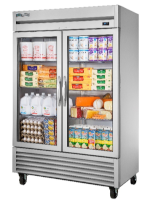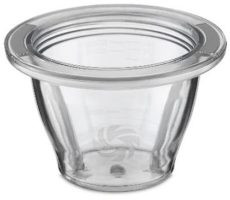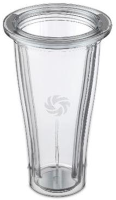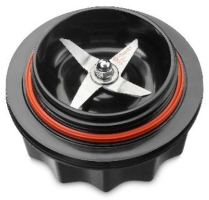
THIS SECTION IS FOR NEWS AND INTERESTING STORIES RELATED TO FOOD, NUTRITION AND FOOD PROCESSING. THEY ARE NOT NECESSARILY RELATED TO KOSHER BUT MAY BE OF INTEREST TO THE KOSHER CONSUMER, MANUFACTURER OR MASHGIACH.

Canadian recall on July 7, 2024 including list of recalled products is here
May 2, 2024 from the CPSC in conjunction with Alerta Rapidida Mexico:
Commercial Refrigerators with Secop Compressors have been recalled because the recalled commercial refrigerators with Secop Compressors can fail in a manner causing the compressor to overheat, posing a fire hazard.
Consumer Contact: True Manufacturing toll-free at 855-203-0185 from 8 a.m. to 4:30 p.m. CT Monday through Friday, email at info@true-secopcompressor-retrofit.com, or online at www.true-secopcompressor-retrofit.com or www.true-secopcompressor-recall.com for more information, or at www.truemfg.com and click on the “Recall” quick link.
Description: This recall involves commercial refrigerators with Secop compressors with model number NLE11MN. The recalled Secop Compressors installed in True Commercial Refrigerators were sold through corporate channels to commercial customers and to the commercial food service companies. The recalled commercial refrigerators are both black and stainless steel in color, and have configurations with double, triple, and sliding doors. The model and serial numbers are printed on a label located inside the commercial refrigerator cabinet by the left door. The following refrigerator models and serial numbers are included in this recall:
A list of recalled products is here.
Remedy: Consumers should immediately stop using commercial refrigerators with Secop compressors with model number NLE11MN, and contact True Manufacturing for a free repair. The original Secop ePTC starter in the compressor with the RSCR motor configuration will be replaced with the CSIR motor configuration. Consumers can register their unit for retrofit at www.true-secopcompressor-retrofit.com or www.true-secopcompressor-recall.com, and an on-site service visit by a technician will be scheduled. True Manufacturing is contacting all known purchasers directly.
July 12 2024 from the JTa. The Original story from STLJewishLight:
"Kohn’s Kosher Meat and Deli opened in 1963 and was beloved as one of St. Louis’ few Jewish delis, kosher or non-. It included a kosher butcher, a bakery and a catering business. In November 2022, the shop was bought for an undisclosed amount by two Jewish businessmen from the East Coast.
"On June 27, Mid Town Distribution, the deli’s Chicago-based kosher food supplier, sued Kohn’s owners, Bayk Kohn LLC and Yehuda Kestenbaum. The lawsuit argues that the owners breached their contract and currently owe a balance of $149,345.20 to Mid Town 'for goods sold and delivered (and) for which payment has not been received.'
"On Tuesday, a letter on Kohn’s website from the Vaad Hoeir of St. Louis, which provides kosher certification, said the restaurant and grocery at 10405 Old Olive Street Road had “closed until further notice” last week.
"'The Vaad is acutely aware of the need in St. Louis for fresh kosher meat, kosher catering and a kosher restaurant,” the Vaad wrote. “Individuals are working to make all of that available, perhaps by reopening Kohn’s, and the Vaad has done everything to support these efforts. However, numerous practical and legal issues need to be sorted through by the parties involved. We are hopeful that we will be able to announce good news early next week.'"
July 11, 2024 from STLJewishLight:
"The closing of Kohn’s Kosher Meat and Deli last week created a void in the Creve Coeur area for kosher meat and one of the restaurant’s most popular items: Killer pastrami. But, for Cardinal fans who go to games at Busch Stadium this season, the authentic Kohn’s killer pastrami sandwich is still available.
"Kohn’s ballpark kiosk, located behind section 147, was slinging out kosher pastrami and hot dogs to a hungry line of customers while the Cards battled the Kansas City Royals on July 10.
"The ballpark cart is not owned by Kohn’s Kosher Meat and Deli. For several years, the ballpark location has been owned by an individual unaffiliated with the grocery and deli. The preparation of its pastrami, though, has not changed over the past 12 years.
"Kent said the ballpark kiosk uses the Kohn’s recipe, and the preparation of food is Vaad certified. While the sign says Kohn’s, 'We’re separate from Kohn’s Meat and Deli.'"
July 11 2024 from the CNN Europe:
"Officials in southern Italy have broken up an alleged racket selling fake olive oil, confiscating 42 tons of the extra virgin variety worth almost $1 million.
"Seven people are accused of criminal conspiracy, adulteration of food substances intended for marketing, fraud in public military supplies and adulteration of food for export, according to a memo sent out by the Carabinieri.
"The raids, carried out overnight Monday in the Puglia region, involved search warrants for 18 garages and warehouses.
"Some of the 42 tons of oil was already packaged ready for sale. Authorities confiscated 71 tons of what was referred to as an “oily substance” in plastic tanks, as well as 623 liters of chlorophyll, a component of extra virgin olive oil that was being added to oil of a lesser value.
"They found packaging equipment, labels purporting that the oil was “extra virgin” when it was clearly not, and commercial documentation including 1,145 customs excise duty stamps that are being studied for forgery, the statement said.
"Vans, loading equipment and computers were also seized.
"Authorities also confiscated 174 bottles of champagne that is suspected of being fake and is undergoing testing.
"The investigation started in September with the arrest of 11 people in Italy and Spain and the confiscation of 12 barrels containing 260,000 liters of adulterated, or non-virgin or extra olive oil.
"Incidents of falsified extra virgin olive oil have increased in recent years, due to both the popularity of the Mediterranean diet and the effects of climate change, which has greatly reduced production in southern Europe due to devastating droughts, according to the International Olive Council.
"In January, officials carried out raids at 50 restaurants in Rome and found seed oil being passed off as extra virgin olive oil."
July 9, 2024 from the Food Ingredients First:
"Singapore has approved the use of 16 insects as food and developed an insect regulatory framework to ensure food safety. Insects declared safe for human consumption include house crickets, grasshoppers, mealworms, locusts and silk moths, among others (at different life stages). Singapore’s low agricultural production means it has a high dependency (90%) on food imports, which this regulation aims to reduce.
"Food traders need to follow specific SFA guidelines and provide information to the organization for all imports of insects and insect products for human consumption to ensure their safe use in foods.
"These include the scientific name of insects and intended life stage of consumption, details of the farming and processing method, including the type of substrate (i.e. material used for feeding insects) and evidence of history of use as a food in a country other than Singapore.
"Companies selling pre-packaged food, including those containing insects as an ingredient, must label the product packaging to indicate the product’s true nature, asserts the SFA."
July 9, 2024 from the Business Insider:
"A new cooking-oil scandal has erupted in China, about a decade after the country's infamous crackdown on restaurants reusing gutter oil and sewage grease.
"he furor follows a bombshell investigation published on July 2 by the state media outlet Beijing News, which found multiple cases of tank trucks transporting edible cooking oil immediately after delivering chemicals used for coal-to-liquid processing.
"The report's author, Han Futao, found that none of the tank interiors were cleaned between loads.
"Han described one case in which a tank truck in Hebei province delivered chemicals in Qinhuangdao before rushing to Sanhe days later to be filled with soy oil.
"Several truck drivers told Beijing News the practice was a widespread cost-saving measure used by firms with thousands of trucks — an "open secret" in the industry, Han wrote.
"In some seasons, the truckers said, drivers would transport industrial wastewater before delivering edible oils.
"National regulations have been a key target for public anger. They recommend that oil companies use tank trucks dedicated to edible substances, but the guideline is only encouraged and isn't mandatory.
"Food safety in China has already been a sensitive topic for years in the wake of multiple scandals involving gutter oil and deadly chemicals in baby milk powder.
July 4, 2024 from the Food Ingredients First:
"The US FDA has revoked authorization for using brominated vegetable oil in beverages after an updated assessment finds the chemical has the “potential for adverse health effects in humans.” The new ruling will come into force on August 2, 2024, after decades of what some believe has been “inaction” on BVO.
"BVO — a vegetable oil that is modified with bromine and has been used as a food ingredient since the 1920s — can be used as a stabilizer in citrus-flavored beverages, particularly to keep the citrus flavoring from floating to the top. It is also found in some sodas.
"The FDA previously authorized its use in small amounts of 15 parts per million or lower. But a new ruling by the agency highlights how the FDA no longer allows for the use of BVO in food with the agency revoking its food additive regulation on July 3."

June 20, 2024 from the CPSC :
JoyJolt Drinkware Declan Single-Wall Glass Coffee Mugs have been recalled because the glass mugs can break and crack when filled with hot liquids, posing burn and laceration hazards.
Consumer Contact: MM Products toll-free at 888-569-5680 from 9 a.m. to 5 p.m. ET, Monday through Friday, email at recall@joyjolt.com, or online at https://joyjolt.com/pages/product-notices-recalls or www.joyjolt.com and click on “Safety Recalls” at the top of the page for more information.
Description: This recall involves JoyJolt Declan Single-Wall Glass Coffee Mugs with model number JG10242. They were sold in a 16 oz. size as a set of six. The recalled glasses are clear with a handle. The model numbers are printed on the product packaging and the order confirmation.
Remedy: Consumers should immediately stop using the recalled coffee glasses, and contact MM Products for a full refund.
Incidents/Injuries: There have been 103 incidents of the recalled coffee glasses breaking at the base, resulting in 56 injuries, including 35 burns across the body from spilled hot liquids, and 21 cuts. Seven incidents required medical attention, including surgery and stitches.
Sold At: Online at www.amazon.com and on MM Products Inc.’s website www.joyjolt.com from September 2019 through May 2022 for between $20 and $25 for a set of six mugs.



June 20, 2024 from the CPSC in cnjunction with Government of Canada:
Vitamix Ascent® Series and Venturist® Series 8-ounce and 20-ounce Blending Containers and Blade Bases have been recalled because the containers can separate from the blade base exposing the blades, posing a laceration hazard to consumers.
Units: About 569,000 (In August 2018, 105,000 of the 569,000 blending containers and blade bases were (previously recalled) (In addition, about 121,950 were sold in Canada)
Consumer Contact: Vitamix toll-free at 855-215-5178 from 7 a.m. to 4 p.m. CT, Monday through Friday, email at service@vitamix.com, or online at www.BlendingCupBowlRecall.expertinquiry.com or https://www.vitamix.com/us/en_us and click on “Product Recalls” at the top of the page for more information.
Description: This recall involves all Ascent and Venturist Series 8-ounce blending containers, 20-ounce blending containers, and blade bases, including those that were repaired as part of a previous recall in August 2018. The clear containers and black blade bases are included with certain Vitamix Venturist and Ascent Series blenders, such as the Venturist V1200, Ascent A2300, Ascent A2500, Ascent A3300, and Ascent A3500 blenders; and also sold separately, as sets, or bundles in various configurations. The Vitamix logo is printed on the blending container.
Remedy: ALL consumers, including consumers who participated in the 2018 recall, should immediately stop using the recalled 8-ounce and 20-ounce blending containers and blade bases, and contact Vitamix for a repair kit consisting of a protective plastic shroud to attach over the blade base and additional instructional labels.
Incidents/Injuries: Vitamix has received 27 reports of lacerations, including 11 reports from the prior 2018 recall, when consumers’ hands came in contact with exposed blades.
Sold At: Costco, Best Buy, Crate & Barrel, Macy’s, Target, Williams Sonoma, Walmart and specialty and independent stores nationwide, and online at Vitamix.com, Amazon.com and QVC.com from April 2017 through May 2024 for between $30 and $990 for the blender and blending containers when sold with other products.

June 6, 2024 from the `Washington Post:
"The results of a new study challenge the popular understanding of sugar alcohols such as xylitol and erythritol as healthy, natural sugar alternatives.
"The popular sugar substitute xylitol, commonly used by those wanting to lose weight or who are diabetic, is associated with an increased risk of a cardiovascular event such as a heart attack and stroke, according to a study published in the European Heart Journal" on June 6, 2024.
"In another study, researchers tested blood-clotting susceptibility by collecting blood from 10 healthy volunteers before and 30 minutes after drinking a xylitol-sweetened drink. Ten other volunteers were given a glucose- or sugar-sweetened drink. Researchers found that those who drank the xylitol beverage showed a marked increase in clotting ability of their blood right after they ingested it. No change in blood clotting ability was found in subjects who had ingested the glucose.
"The same research team found a similar link between erythritol and cardiovascular risk last year.
"The findings come as use of sugar alcohols such as xylitol is trending upward, as keto and low-carb diet trends are generating growth in alternative sweeteners billed as “natural.” Some $1.19 billion in xylitol products were sold in 2021, and that market is expected to grow to about $1.48 billion by 2030, according to the research firm Custom Market Insights.
"The results challenge the popular understanding of sugar alcohols such as xylitol and erythritol as healthy, natural sugar alternatives. People view them as natural because our bodies produce them as part of our energy metabolism; however, our cells produce them at much lower levels. When these sugar alcohols are manufactured, they are industrially prepared, using bacteria or yeast that’s put through brewing and fermentation processes to create a chemical that tricks our taste buds
"Researchers also found that an elevated xylitol level may be worse for your heart than cholesterol. By eating a high-cholesterol diet, we might increase our blood cholesterol levels by 10 to 30 percent, Hazen said. By eating a product high in xylitol, researchers found, the chemical levels in the blood went up 1,000-fold — or 100,000 percent — and remained elevated for four to six hours."
June 5, 2024 from the Food Safety News:
"A new study by Consumer Reports has found alarming levels of lead in some vegetable puffs marketed for small children.
"The consumer advocacy group tested two puffs: cassava made by Lesser Evil and Serenity Kids and sorghum puffs from Once Upon a Farm.
"Certain foods are more likely to have dangerous lead levels than others. For example, cassava and other root vegetables, including sweet potatoes, carrots, and beets, can be troublesome because lead occurs naturally in soil and can accumulate in a plant’s roots, said Angelia Seyfferth from the Department of Plants and Sciences at the University of Delaware.
"Also, processing cassava into flour for crackers, chips, or other snack foods can concentrate the lead more robustly than eating fresh vegetables.
"Consumer Reports was alerted to concerns about lead in cassava by Tamara Rubin, the owner of Lead Safe Mama. She focuses on preventing lead poisoning and helping parents identify possible sources of lead exposure."
| The information posted is from secondary sources. We cannot take responsibility for the accuracy of the information. |
| Comments to webmaster@kashrut.com
© Copyright 2024 Scharf Associates |
|
|||||||||||